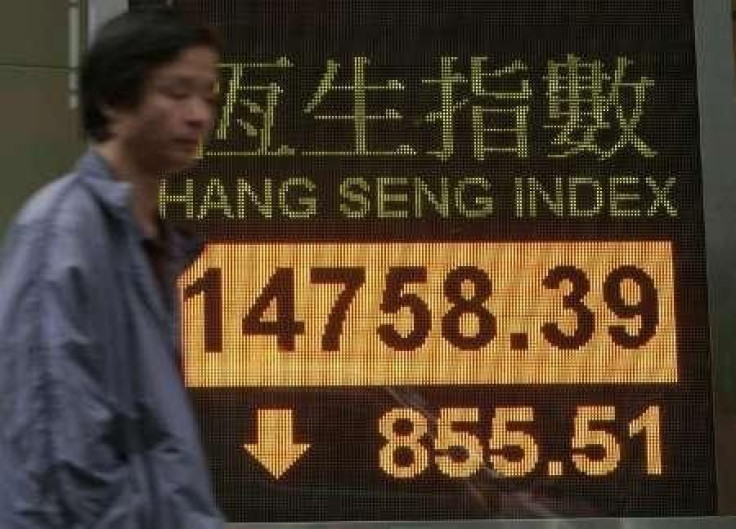Asian Stocks Decline on Chinese Trade Data

Asian stock markets ended lower Monday as disappointing Chinese trade data released over the weekend overshadowed stronger than expected US February jobs report.
The Japanese benchmark Nikkei declined 0.40 percent or 39.88 points to 9,889.86, Chinese Shanghai Composite fell 0.19 percent to 2,434.86 and South Korea's Seoul Composite slipped 0.78 percent while Hong Kong's Hang Seng gained 0.23 percent or 48.18 points to 21,134.18.
Nippon Sheet Glass Co. Ltd plunged 4.65 percent, Nippon Electric Glass Co., and Sharp Corp. declined more than 2.5 percent in Japan, While Sumo Corp. climbed 8.8 percent and Nikon Corp. gained 3.57 percent.
In Hong Kong, China Shipping Container Lines plunged 5.07 percent and China COSCO Holdings declined 1.24 percent while Cosco Pacific Ltd. fell 1.54 percent.
The stronger than expected US February jobs report and the Greek PSI debt swap should by all rights have set a positive tone to markets this week. Unfortunately this is not the case and cautious is set to prevail, with sentiment dampened in part by China's trade deficit posted in February, Credit Agricole said in a research note.
China reported a trade deficit of $31.48 billion in February, the biggest monthly gap in over 20 years, compared to a surplus of $6.5 billion in January. The imports for February came to a total of $146 billion, while exports were $114.5 billion. This is another indication that global economic condition is continuing to affect the country's exports.
The Department of Labor reported Friday that the U.S. economy added 227,000 jobs in February, the third straight month more than 200,000 workers found jobs, indicating that job market recovery in the world's biggest economy is picking up speed. Meanwhile, the unemployment rate remained at a three year low of 8.3 percent.
© Copyright IBTimes 2024. All rights reserved.











